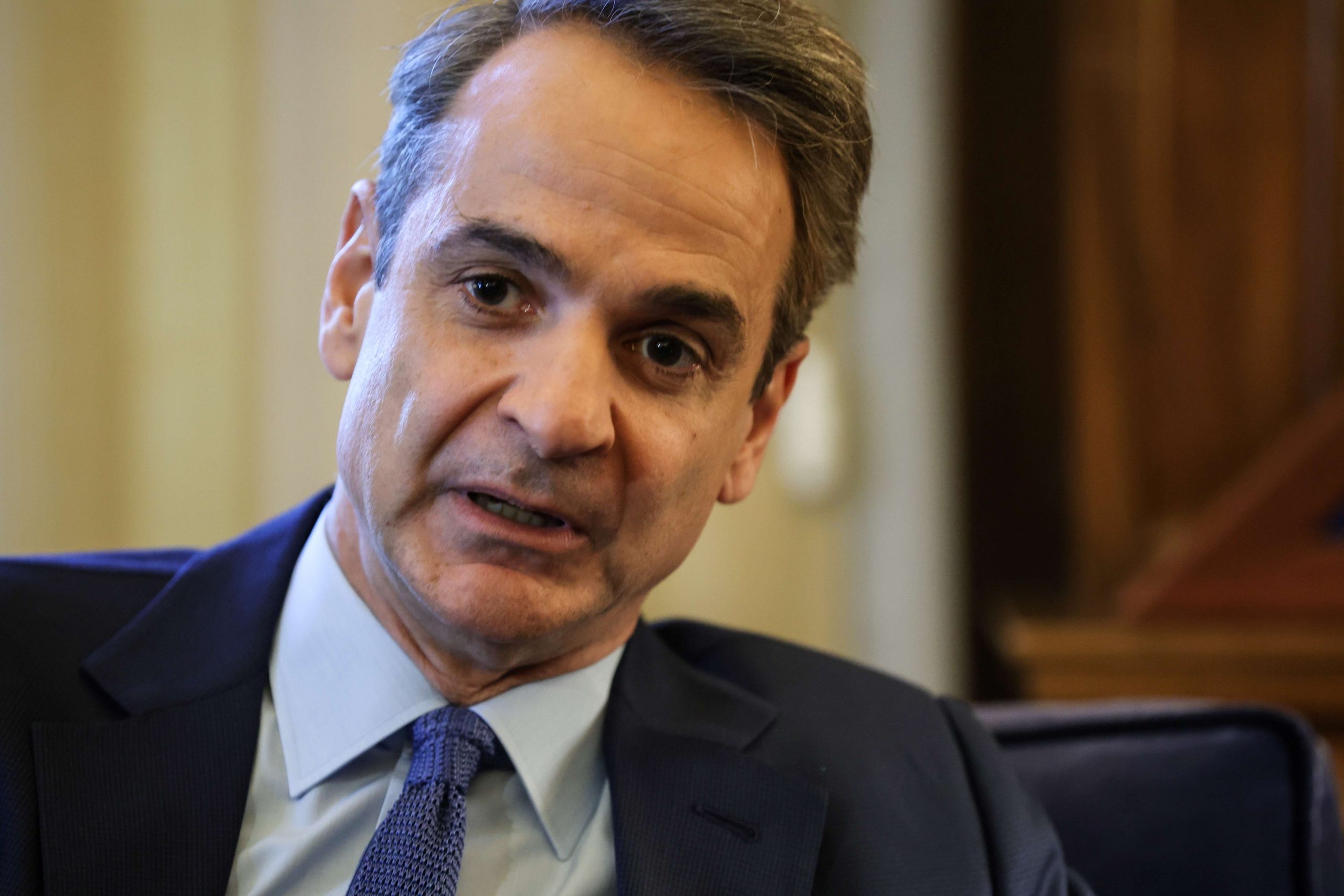Greek Prime Minister Kyriakos Mitsotakis provided a wide-ranging interview on Tuesday morning on an Athens-area radio program, where he touched on issues ranging from the most recent announcements concerning state-of-the-art weapons systems, to greater support for flood-ravaged farmers and even the tenuous situation in the country’s public universities.
Speaking on a morning current affairs segment on the Skai FM station, the center-right Greek prime minister was first queried over the most recent “nod” by Washington sell Greece 20 F-35 fighter planes, with an option for another 20.
Mitsotakis, whose government gets high marks by voters on defense and foreign policy issues, said the approval by the US State Department late last week, as detailed by a letter from US Secretary of State Antony Blinken, “comprises proof of the strategic depth of Greece-America relations.”
“Greece ensured its participation in the F-35 program and the very significant and no-cost material that will reinforce the armed forces…it’s proof of how the United States sees the role of Greece as a force of stability in the Mediterranean. Not all countries acquire defense material.”
He also bypassed a usual “indirect” reference to an unnamed adversary or threat, stressing directly that “the purpose of strengthening the armed forces is to ensure a tactical advantage, qualitative if not quantitative, vis-à-vis Turkey.”
Asked about a parallel decision by the Biden administration to finally sell a new batch of F-16s and modernization kits to Turkey for its current fleet, Mitsotakis said Athens’ standing position is that it cannot impose on Washington to sell or not weapons systems to Turkey, but “it’s significant and self-evident for Greece’s concerns to be heard; to ensure that these weapons will not be used against NATO allies”.
“We won’t buy the 40 F-35s all at once, we have room for a squadron in the first phase, with deliveries beginning from the end of this decade and with a long-term plan for our defense spending, one which takes into account budget constraints and a technological leap.”
Greek-Turkish relations
In switching to actual relations with the often-difficult neighboring country, Mitsotakis acknowledged the good climate with Ankara over the past few months and what he called significant steps in a recent rapprochement.
“We’ve put Greek-Turkish relations on a course of normalization, and we’re safeguarding this achievement. This rapprochement won’t proceed without ups-and-downs, it’s unreasonable to expect this, and I have experience with rhetorical excesses.”
Along those lines he confirmed a visit to Turkey in May.
In further commenting on bilateral relations, which dramatically deteriorated between 2019 and 2023 mostly on the back of the Erdogan administration’s revisionist rhetoric and even saber-rattling, Mitsotakis said preserving the now positive climate is important, but in itself it’s also necessary to facilitate a solution to more complex differences.
“We have been talking for more than 20 years without being able to find a solution Two basic conditions are necessary: preservation of a good climate without escalation and respect for international law, which sets the framework for a rules-based solution.”



